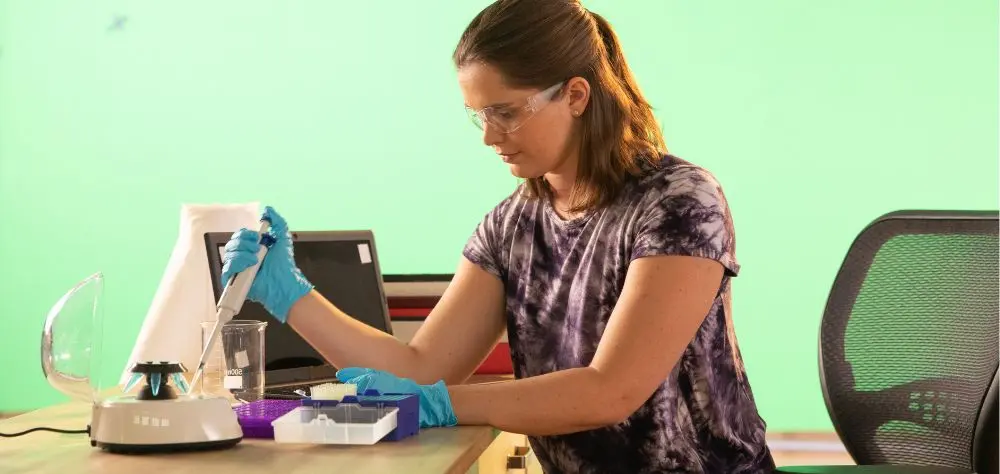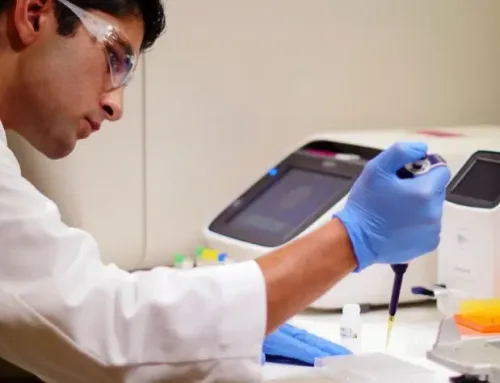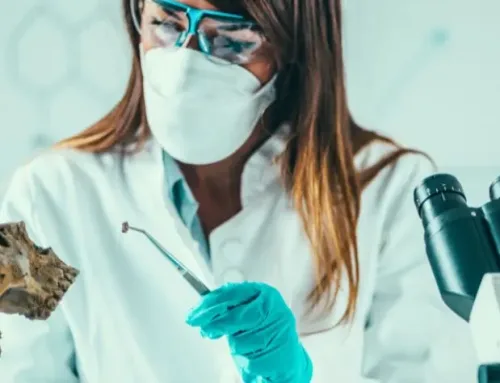How to Obtain a Genetic Genealogy Certification: A Step-by-Step Guide
Genetic genealogy certification has become a valuable credential as genetic genealogy gains popularity in fields like family history, ancestry research, and even forensic science. Combining DNA analysis with traditional genealogy, this field is increasingly used to trace familial connections, identify unknown relatives, and, in some cases, aid criminal investigations.
For those serious about pursuing genetic genealogy, advanced programs like SCU’s Master of Science in Human Genetics and Genomics offer a strong foundation, blending practical skills with in-depth knowledge in genetics and genomics.
In this guide, we’ll walk you through the steps to obtain a genetic genealogy certification, from foundational training to specialized programs. Whether for personal or professional development, certification in genetic genealogy can open doors in this dynamic and impactful field.
Which Genetic Genealogy Certification Is Right for You?
Genetic genealogy certifications offer a structured path to gain expertise in DNA analysis and ancestral tracing, essential skills for both personal and professional applications. There are several highly regarded certifications available, each designed to match your skill level and specific interests in this growing field.
Types of Genetic Genealogy Certifications
There are several well-established organizations offering genetic genealogy certifications, each known for their educational quality and industry recognition, including:
- International Society of Genetic Genealogy (ISOGG): Known for setting standards in the field, ISOGG offers resources and certifications geared toward understanding genetic genealogy’s scientific principles.
- Institute for Genetic Genealogy (IGG): The IGG offers certifications that emphasize practical applications of genetic genealogy, including forensic genealogy techniques.
Different Levels and Focus Areas
Genetic genealogy certifications often vary by experience level, allowing professionals to progress from foundational knowledge to specialized expertise:
- Entry-Level: Basic courses cover introductory concepts, including DNA basics and initial steps in genealogy.
- Intermediate: Expands to include deeper DNA analysis and tools for ancestral tracing, suited for those wanting to apply genetic genealogy in research.
- Advanced: Covers complex DNA sequencing, ethical considerations, and advanced analytical techniques, preparing professionals for in-depth casework.
Step 1: Choosing the Right Certification Program
Choosing the right genetic genealogy certification begins with understanding your goals and reviewing program requirements. This foundational step ensures that your certification aligns with your ambitions, whether they involve personal research, professional genealogy, or forensic applications.
Assessing Your Goals and Career Aspirations
Before selecting a program, consider your specific objectives in genetic genealogy. Are you drawn to personal family history research, aiming to become a professional genealogist, or interested in forensic applications to assist in investigations? Defining your focus can help you choose a certification that builds the skills most relevant to your path, ensuring your time and effort align with your desired outcomes.
Reviewing Certification Program Requirements and Structure
Not all certification programs are created equal, so carefully evaluate each option. Look into the curriculum, course duration, and specialization options, such as forensic genealogy or biogeographic ancestry. Some programs are short-term and focused, while others are more comprehensive, covering advanced DNA analysis and genealogical methods.
Step 2: Building Essential Skills and Knowledge in Genetics
Before obtaining certification, it’s essential to build a foundation in genetics and genealogy, as these skills form the core of genetic genealogy work. From DNA basics to genealogy techniques, these competencies allow you to navigate the field with confidence and precision.
Genetics and DNA Analysis Basics
A solid understanding of genetics is crucial. Key concepts include DNA structure, inheritance patterns, and types of genetic markers, all of which are foundational in genetic genealogy. Learning these principles allows you to interpret DNA data accurately and understand the biological basis of ancestry.
Genealogical Research Techniques
Equally important are genealogical research methods, which involve systematically collecting, documenting, and analyzing family history data. Techniques include building family trees, tracing lineage, and using digital resources and databases. Mastering these skills enables you to construct detailed genealogies and connect DNA evidence with historical records.
Suggested Courses and Resources
Several reputable genealogical societies and institutions offer resources and courses to help you get started. The National Genealogical Society and International Society of Genetic Genealogy provide foundational knowledge essential for certification, offering valuable insights for beginners and professionals alike.
Step 3: Gaining Practical Experience with DNA Analysis and Genealogical Tools
Hands-on experience with DNA analysis tools and genealogical software is invaluable for anyone pursuing genetic genealogy certification. Using these resources prepares you for real-world applications of genetic genealogy, equipping you with practical skills to interpret and apply data effectively.
Hands-On DNA Analysis Tools
Genetic genealogy relies on platforms like GEDmatch, 23andMe, and AncestryDNA, which provide the analytical tools needed to match and compare DNA. Learning to navigate these platforms allows you to analyze relationships, build family trees, and explore genetic connections.
Analyzing and Interpreting Genetic Data
Once you’ve gathered data, interpreting genetic comparisons, determining lineage, and estimating relationships become central tasks. These skills are critical in genetic genealogy, where accurate interpretation can clarify familial links and contribute to genealogical research.
Step 4: Applying for Certification and Preparing for Exams
Once you’ve built foundational skills, it’s time to apply for genetic genealogy certification and prepare for exams. This stage involves gathering application materials, meeting requirements, and getting ready to demonstrate your expertise through a comprehensive examination process.
Understanding the Application Process
Certification applications typically require specific documentation, such as proof of completed coursework, relevant professional experience, and, in some cases, letters of recommendation. Review the prerequisites for your chosen program carefully to ensure you meet all requirements before applying.
Preparing for Certification Exams
Certification exams often cover a range of topics, from genetic data analysis and genealogical research techniques to ethical guidelines. Exam formats vary but frequently include multiple-choice questions, case studies, or practical assessments. To prepare effectively, utilize study guides and take practice exams to familiarize yourself with the test’s structure and key content areas.
Tips for Success
To maximize your exam performance, focus on areas that often feature prominently in certification tests: genetic data interpretation, historical records analysis, and ethical considerations in genetic genealogy. Stay calm, manage your time wisely, and ensure a thorough understanding of essential tools and concepts.
Step 5: Continuing Education and Staying Updated
Genetic genealogy is an evolving field, with advancements in DNA technology and genomics regularly shaping best practices. To maintain your expertise and stay competitive, ongoing learning is key even after certification.
Advancing Skills Post-Certification
Continued education keeps your skills relevant as genetic genealogy technology progresses. Regularly updating your knowledge in genetics, DNA technology, and genealogical software helps you provide accurate and up-to-date insights in your work.
Your Path to Expertise: Our MSHGG Program for Genetic Genealogists
SCU’s Master of Science in Human Genetics and Genomics (MSHGG) program is designed to meet the needs of students aiming for expertise in genetics and genomics, with direct applications in genetic genealogy. Delivered 100% online with our Fixed-Rate Tuition Guarantee, our program provides advanced learning in a flexible, accessible format.
SCU’s Comprehensive Genetics and Genomics Curriculum
Our MSHGG program offers an in-depth curriculum, perfect for students seeking to build strong knowledge in genetics, especially those interested in genetic genealogy. With courses covering genetic markers, sequencing, and analysis, our program provides students with insights and tools they can directly apply in the field of genealogy.
Transform Your Career with SCU’s Comprehensive MSHGG Program
Pursuing genetic genealogy certification requires specialized skills and advanced knowledge, and SCU’s Master of Science in Human Genetics and Genomics (MSHGG) program offers an ideal path forward. With an all-encompassing curriculum in genetics and bioinformatics, plus practical training through a capstone project, our program is tailored for those looking to stand out in this growing field.
Our 100% online MSHGG program allows you to study flexibly while benefiting from career-focused learning and scholarship opportunities. Ready to take the next step toward a career in genetic genealogy? Review our admission requirements and apply today!
FAQs
How long does it take to get certified in genetic genealogy?
Certification timelines vary, depending on program depth and prior experience, but many people complete certification programs within a few months to a year with consistent study.
Do genetic genealogy programs include practical experience?
Most programs include labs or projects to develop practical skills, allowing you to analyze real genetic data and build confidence in using genetic genealogy tools.
What career paths are available after a genetic genealogy certification?
Certified genetic genealogists work in ancestry companies, forensics, academic research, and consulting, often providing specialized DNA analysis and research services for family history and law enforcement.
What skills do I need for success in genetic genealogy?
Key skills include DNA analysis, genealogy research techniques, and familiarity with bioinformatics tools. Strong analytical abilities and attention to detail are essential in interpreting complex genetic data.
Related Posts





